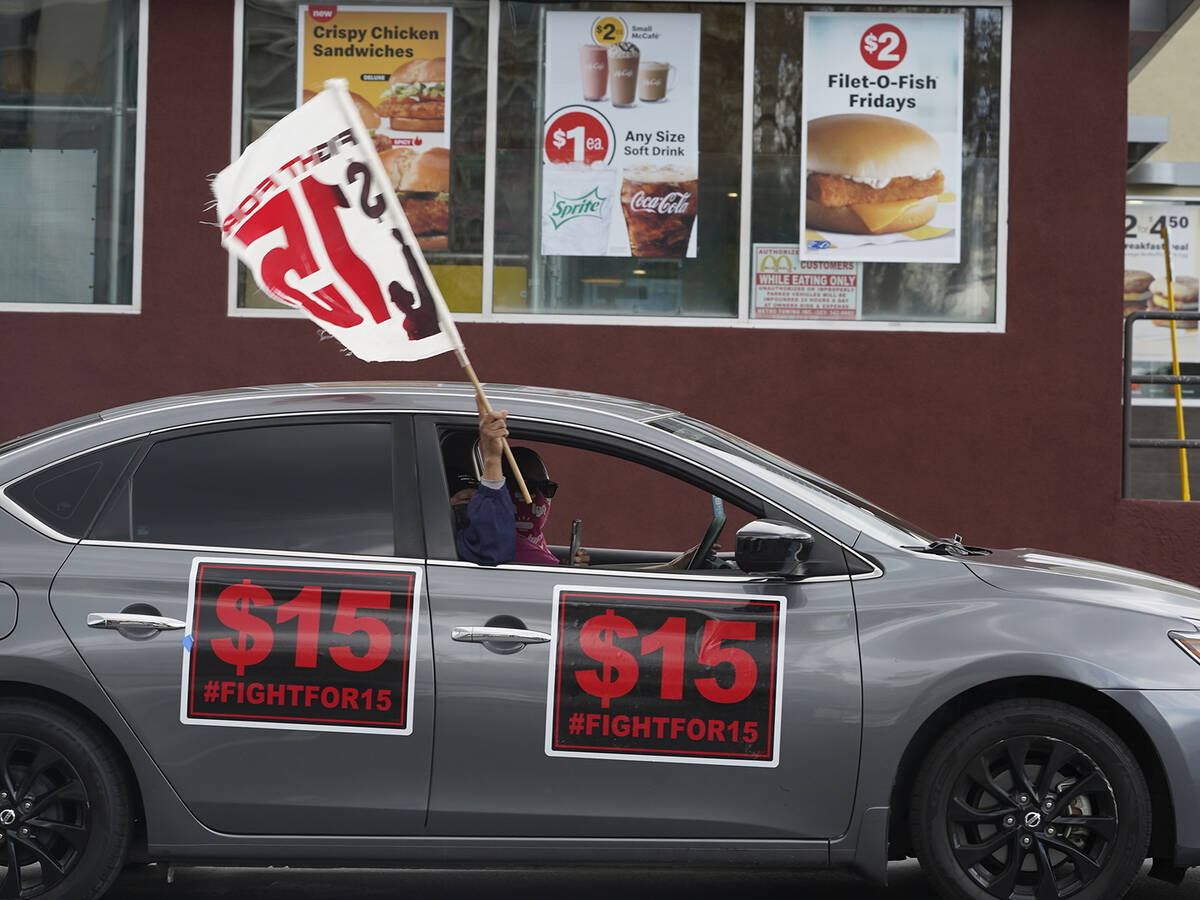COMMENTARY: California’s minimum wage heist
The new year looks bleak for 1,200 Pizza Hut delivery drivers in California, thanks to a new statewide minimum wage law that goes into effect April 1. The pizza chain can no longer afford to keep delivery service because fast-food workers will now make $20 an hour instead of $16. This legislation may directly affect only large fast-food chains with 60 or more locations nationwide. Still, its repercussions will be felt throughout the industry and beyond.
Companies rarely absorb those costs; they can’t. Workers and consumers take the hit. On top of layoffs, California customers should expect to pay more at the drive-thru window.
Chipotle and McDonald’s have suggested they will raise menu prices. Chipotle’s CEO said, “We are definitely going to pass this on. We just haven’t made a final decision as to what level yet.”
It is as if consumers haven’t seen price increases at their favorite fast-food joints since the pandemic. Anyone who frequents these establishments has noticed their “value meal” costs them more. A lot more.
McDonald’s says it raised prices 10 percent in 2022 and another 10 percent in 2023. Chipotle increased prices five times in two years. Chick-fil-A and Wendy’s reportedly suffered the most significant price hikes over the past few years, with the latter’s menu prices spiking nearly 35 percent.
Videos have gone viral demonstrating some expensive meals bought at various locations. In spring 2023, one TikToker’s video highlighting McDonald’s combo meals went viral. A Big Mac meal was an astounding $16.89. Customers are not happy.
If consumers still want Pizza Hut delivered to their door, they will need to resort to third-party apps like UberEats and DoorDash, which will cost them more because of fees associated with the apps.
Studies have shown that increasing the minimum wage tends to decrease employment, overall take-home pay, fringe benefits and training opportunities for employees. For instance, one study found that Seattle saw overall wages decline by an average of $125 monthly because of reduced work hours after a minimum-wage hike. In most cases, many businesses find themselves cutting employees, investing in automation to replace physical employment, and, worst cases, filing for bankruptcy and closing their doors.
Even the Department of Labor’s assessment of the first 25-cent minimum wage in 1938 found it resulted in job losses for 30,000 to 50,000 workers, amounting to nearly 13 percent of those who stood to benefit.
Low-skilled and disadvantaged workers suffer the most because companies can’t afford to keep them. This includes high schoolers, immigrants and the disabled who lose out on job opportunities to gain valuable work experience and build upward mobility.
Businesses will either eliminate positions completely or replace humans with machines. Restaurants are already investing in automation. Some estimates say up to 51 percent of quick-service restaurant tasks will be automated by 2025; full-service restaurants expect 27 percent.
This bill will have rippling effects across California’s economy. Smaller chains will be compelled to raise their wages to compete with the larger companies, making it more difficult for them to operate. Other industries, such as retail, could face labor shortages or be forced to increase pay to retain employees who might switch to fast food.
Minimum wage increases don’t reduce poverty levels and often hurt the very population they aim to protect. Economic research shows that somebody must pay the price for any increase, and it is usually the least skilled and least fortunate among us. Those who lose employment also lose their income, which could drop them and their family into poverty. And because higher prices are often a result of such policies, the poorest suffer disproportionately from price inflation.
You better believe that other states will feel empowered to mirror California and write their own legislation, endangering the livelihoods of fast-food workers throughout America, as if California is the bastion of good policy. There’s a reason people are fleeing the state in record numbers.
Pizza Hut is just the first to announce job cuts. Who’s next?
Workers and consumers need to be protected instead of exploited. Markets, not the government, should be dictating wages.
Kristen Walker is a policy analyst for the American Consumer Institute. She wrote this for InsideSources.com.

















